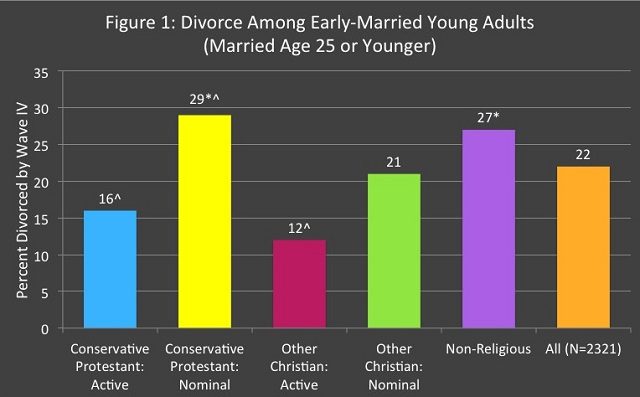
This dialogue began when atheist “Sporkfighter” started commenting underneath my paper, Dialogues on “Contradictions” w Bible-Bashing Atheists. His words will be in blue.
*****
What is “Biblical evidence” without prior extra-Biblical evidence of the Bible’s accuracy?
Exactly right. It presupposes biblical inspiration, which must be established on other grounds. The title of my blog is basically a roundabout polemical swipe at Protestants, who agree with us that the Bible is inspired.
We agree that the Bible is inspired?
Who is “we”? A liberal Protestant? Then you wouldn’t. :-) One who actually continues the heritage of Luther, Calvin, and Wesley would.
Unless you can demonstrate that the Bible is more than mythology and that any occasional correlation with fact is more than coincidence, there’s no reason to give it a second glance.
Yep. See: God: Historical Arguments (Copious Helpful Resources).
The Epic of Gilgamesh is set in Uruk, a real city. Sleepless in Seattle is set in Seattle, a real city. Harry Potter is set in Great Britain, a real country. Setting a story in a real place does not mean everything or anything else in the story is real.
The Shroud of Turin? At best, it’s a burial shroud of somebody, but somebody who looks remarkably like medieval European images of Christ with long hair, not the short hair common among first century Jews. At worst (and most likely) it’s an image of a human created by a human to defraud other humans. There was a brisk trade in Biblical relics for more than a thousand years, and educated people have know most of them were fakes for nearly as long. Just read the Pardoner’s Tale from the Canterbury Tales.
Discovery channel documentaries? If I believe those, I have to believe in ancient aliens too.
No, it’s not enough to show some mundane events in the Bible really happened or that places in the Bible really existed or that lots of people believe the stranger parts really happened. If the important, the miraculous parts of the Bible are to be believed, you have to show that those parts are true. Where’s the extra-Biblical evidence for Noah’s flood, for Jesus’ resurrection?
Finally, if any part of the Bible is known to be false, then every part of it is suspect. Since Christians themselves can’t agree on which parts are true, which are allegorical, or what the “true” parts mean, every word in the Bible not validated extra-Biblically is suspect.
Believe if you want, but at least understand why others might not believe. We’re not stupid, we’re not mad at God, and we’re not denying God so we can live debauched lives of sin.
Thanks for your input. I didn’t expect you to respond to the evidences I presented, so I wasn’t surprised. It doesn’t make them null and void, however, simply because you cavalierly dismiss them.
Stick around; maybe in due course you’ll see something appealing in the Christian worldview that you hadn’t seen before. You’re more than welcome as long as you don’t sink to rank insults.
You presented no evidence, just a box of links, most of which I’ve read many times in the past.
Evidence that the Bible is true must reference evidence outside the Bible, so most of your evidence “from the Bible” could at best show the Bible is internally consistent, but well written fiction is always internally consistent, so that would prove nothing even if the Bible were internally consistent, and it’s not.
Evidence that some of the Bible is true is not evidence that all of the Bible is true just as a chemistry textbook from 1880 isn’t all correct because some of it is. This seem obvious, but many apologists don’t seem to get it.
The number of miracles* reported have diminished in grandeur as science explains more, education replaces credulity. This isn’t proof that the miracles of the Bible didn’t happen, but it does lead me to wonder why the sun stood still, people rose from the dead, and virgins gave birth then but not now. You’d need stronger evidence that they happened as well as an explanation for why they don’t anymore.**
*It’s not a miracle when one of a few people survive a disaster without some reason the majority didn’t.
**Curious fact: The number of UFO reports have dropped as cell phones became ubiquitous. If you report a UFO now, people expect pictures. Kind of like miracles, people don’t take the word of anonymous strangers anymore, they expect the evidence.
The Shroud of Turin is a good example of what’s wrong the way evidence for the Bible falls apart when you look carefully, so let’s look at. The Shroud purports to be an image of Christ on linen fabric that could not possibly have been created by humans on cloth preserved for 2,000 years. However…
1. The best dating techniques place its creation between 1260–1390 CE. You can argue against that dating, but that’s not evidence placing it around 30 CE.
2. You can’t prove it’s of Middle-eastern origin, and we know similar fabric has been made in other places and other times, including medieval Europe.
3. You can’t prove it’s not a creation of human ingenuity; how could you without knowing the limits on human ingenuity?
No, the most likely explanation is that it’s a forgery from a time and place that we know and people of the day knew was rife with forged Biblical relics. Just read Chaucer’s “The Pardoner’s Tale” from 1387-1400. Moreover, the first evidence we have for it’s existence was in 1390, when the local bishop reported that an artist confessed to creating it! Clearly, the best explanation is that the Shroud is one more of the thousands of forged Christian relics that were common as cats in Europe of the day*.
*Take a guess at how many of Jesus’ foreskins were paraded around Europe…got a number? At least eight and perhaps 18.
All the evidence for the Bible as truth I’ve studied falls apart similarly upon examination. If you have something you’ve personally looked into, I’m all eyes, but don’t waste my time with a bunch of links to arguments you haven’t investigated carefully on your own.
I have in fact investigated many of these things on my own. You may not know much about me. I’ve been doing apologetics for 39 years, have written 50 books (some 30 or so published by “real” publishers: not just self-published), and have 2900 articles on my blog. The fact that you can utterly dismiss all of those articles and play the game as if they don’t present any evidence whatsoever that isn’t circular reasoning, shows that you are in an impenetrable epistemological bubble and impervious to anything outside of it.
You write, for example: “Evidence that the Bible is true must reference evidence outside the Bible . . .”
Of course, all of archaeological evidence (to mention just one thing) is of that nature. But you’re capable of blowing all that off in one fell swoop. You’re not fooling anyone. That’s not a serious attempt to grapple with the relevant evidence.
There are good arguments that the dating of the Shroud is at the time of Christ. In a nutshell, the samples taken that showed later dates were from patches that were later added. There are objective ways to determine this, and they have been demonstrated. That’s only about dating, of course, and is the bare minimum of anything approaching “proof” that it’s the burial shroud of Jesus, but at least it shows that it is not a mere “medieval hoax.”
Basically, you’re saying (in a nice way so far, but still . . .) that Christians are merely blind faith, irrational, anti-scientific dummies. It’s the old atheist line, and it won’t do.
What I’ve been mostly doing with atheists is shooting down their alleged “contradictions” in the Bible. I’ve done that 40 times with Bob Seidensticker (Cross Examined site), 42 with Dr. David Madison (Debunking Christianity) and 21 refutations of Ward Ricker (see the post above), who put together a book with a bunch of these. This is something objective that can be discussed pro and con rather than the “101 objections” routine, where nothing serious can be accomplished.
I also wrote a paper specifically for people like you who want to blow off the extensive scholarly links / articles that I have compiled regarding evidences for Christianity and theistic proofs: Why I Collect Lots of Scholarly Articles for Atheists.
I would say, with all due respect, don’t waste my time, either, with your flippant dismissal of a whole range of relevant articles and arguments in favor of Christianity, and your epistemological naiveté. It doesn’t work with me. It may with many less educated Christians, and even many less experienced Christian apologists, but not with me. I’m too familiar with the timeworn games and tactics, and I see the sort of counter-arguments that atheists come up with, because I’ve been interacting with them these past 39 years off and on.
I have in fact investigated many of these things on my own. You may not know much about me. I’ve been doing apologetics for 39 years, have written 50 books (some 30 or so published by “real” publishers: not just self-published), and have 2900 articles on my blog.
I, too have been reading and studying for forty years, starting with degrees in mathematics and physics. Chances are excellent that I’ve read some of your research material myself. What are the chances that you’ve read, say, Atheism: The Case Against God by George Smith or other comparable works from the atheist point of view? In my experience, apologists read other apologists and they argue against other apologists’ versions of atheism but not against an atheist’s version of atheism.
If you’ve really studied and written on these issues, you should know better than to give 30 links and call it an argument. One at a time…what’s your best evidence? I can debunk it or I can’t, you can support it or you can’t, but that way it’s possible to hold a discussion.
Yeah, I’ve read books by Richard Dawkins, Christopher Hitchens (probably the two most well-known atheist books in recent times), and John Loftus. I responded to both Dawkins and Loftus in several papers. Loftus (who challenged me to do it) has ignored my replies. When he has “interacted” with me in the past it was sort of like Mt. Vesuvius or Mt. St. Helens: lots of smoke and fury but little else.
I explained why I provided the links (in my article I linked to). There is nothing wrong with it: no more than books providing lengthy bibliographies for further related reading. I was trying to provide a service to atheists: in effect, “you want some serious scholarly articles from a Christian viewpoint that cover these topics you are interested in? Here you go.” I recognize my limitations: which is why I’m citing scholars in certain areas. I can’t do everything myself. It doesn’t follow that I make no arguments. I do, and I also provide further reading. What in the world is wrong with that is, I confess, beyond my comprehension. Atheists apparently reject the notion of “further recommended reading.” I’ve gone through this silliness several times now.
Asking me what my best evidence is is like asking a happily married man why he loves his wife. I believe as I do because of the cumulative force of scores and scores of factors and reasons and evidences. I’ve written about a great many of those things.
If you are truly interested in dialogue (and not just smug “gotcha!” polemics and breezy dismissals), pick something I’ve written about and go at it. Most atheists simply ignore my refutations of their arguments (especially the alleged Bible contradictions). You can always pick up their slack if you like. But it has to be a dialogue that goes somewhere; has some constructive value (and I don’t mean by that only that one or the other is persuaded; insights and understandings can at least be gained). See my atheism & agnosticism and philosophy & science pages.
Oh, one more thing. If you want to do serious, ongoing dialogue, you’re gonna have to share your real name and some online source that tells more about you. I don’t spend much time on mysterious, anonymous folks. If you have the courage of your convictions you ought to “come out” and reveal yourself beyond nicknames. As it is, even your Disqus profile tells me nothing.
OK, I read “Replies to Atheists’ & Skeptics’ Garden Variety Objections.” [link]
Every point starts with the assumption that God exists. That’s great once you’re there, but how do you get there? My question isn’t “What is God like?” I ask “Is there a god?”
You misunderstand what that paper was about. I answer from within the paradigm of how a question is framed and will argue differently, based on who I am talking to. The first question was, “How can we really know what God is like?” This, in a sense, momentarily posits the existence of God for the sake of argument and then inquires: how do we know what God — if he exists — is like? And so I said, “look at Jesus.” That is the Christian answer.
You are answering questions I haven’t asked precisely because you’re speaking from inside Christianity to people who take the existence of God as a given. None of that matters to someone who doesn’t already believe.
You make an “internal criticism” directed towards the Christian system. Therefore I have to talk about God as I understand Him to be from within that system, to show that there is no inconsistency or incoherence. Same thing with the next section about God and suffering: the classic objection. I can’t reply to that and not mention God, because it is a critique of the Christian God to begin with. Three more questions are of the same type.
The last question in the paper is: “And how can we totally understand God?” One can’t answer that without mentioning God, either. We have to answer according to our theistic and Christian understanding.
This person is arguing, in effect, “your system seems incoherent and inexplicable to me. Please explain it so that it doesn’t seem that way.” And so I did. It depends on what a person is asking for.
In “Bad or Absent Fathers as a Strong Indicator of Atheism” [link] you follow Vitz’s cherry-picked aspects of cherry-picked atheists’ relations with their fathers with this: “It’s a known fact that people’s relationships with their fathers in particular can have a significant effect on their view of God.” Beyond the sociological observation that people generally follow the religion of their parents, isn’t this just a matter of human psychology? What has it to do with the question of God’s existence?
I didn’t claim that the atheists and their fathers paper had to do with whether God exists or not. This is a turning the tables argument against the atheist polemic that Christians are only such because of their upbringing. So we retort by saying: so is atheism, many times. The examples of famous atheists are evidence of that: not of whether God exists. You are analyzing very sloppily and illogically. This is simply sociological observation (my major was sociology and Vitz is a psychologist or psychiatrist).
“Must Christianity be Empirically Falsifiable to be Rationally Held?” [link] A scientific hypothesis should be falsifiable, but is Christianity a scientific hypothesis? Some people would claim that the existence of God is a scientific question in that God does or does not exist, that “no God” could be disproved by his appearance in Times Square. That hasn’t happened but I can’t show that it won’t. Seems like a silly stand for an atheist to take.
I explain carefully the point I am trying to make there and you seem to have missed it. The exact essence of the paper is in its title. It’s not an argument about God’s existence, but rather, about the circular nature of empiricist-only atheist thought and logical positivism. The point is that there are many fields of knowledge which are not ultimately dependent on empiricism and falsifiablility: mathematics and logic being two. Nor can science even begin with pure empiricism. It requires non-empirical axioms such as uniformitarianism to get off the ground.
“Jesus’ Death: Proof of a “Bloodthirsty” God, or Loving Sacrifice?” [link]
Again, you assume God exists, then discuss his personality. The does not address the atheist’s first question: “Does God exist?”
It’s not meant to do what you seem to always demand: ironclad, undeniable proof of God. This is, again, about an internal criticism of Christianity. So one has to tackle it from within the Christian paradigm, explaining how we think His death suggests love rather than a “bloodthirsty” God.
I clearly haven’t read everything you’ve written, but in everything I have read, you take God as a given and move on from there. I’m unwilling to grant you that as an axiom in this context. In real life, you can believe what you want for reasons you find convincing.
All you have shown, then, is that you consistently misunderstand the purpose and nature of individual articles of mine, and the nature and force of the arguments as well. It’s very common. Atheists are in their own little bubble, so they underestimate and often completely miscomprehend Christian apologetics arguments.
Finally, I’ve found many Christians to be mean-spirited and vindictive. They’ve attacked me online, they’ve contacted my employer to try and get me fired, and they’ve threatened my children, so I will not be doxxing myself.
That’s most unfortunate and sad. I am not that way at all, and apologize on behalf of the morons calling themselves Christians who would act in such a way. They make my job very difficult, too, if many atheists approach me thinking I’m gonna act like these jackasses and fools that you describe. I’m trying to represent the thinking of Christians and the spirit of the thing, which is loving all people and God and not falling into all the usual prevalent sins.
Indeed you are not. I have close friends that are Mormon, Muslim, and Christian who know I think their religious belief are unfounded, just as they think I’m not seeing the truth, but we’re willing to let each other be wrong because it’s the only way can all be left to be right.
***
Photo credit: geralt (2-16-16) [Pixabay / Pixabay License]
***



























